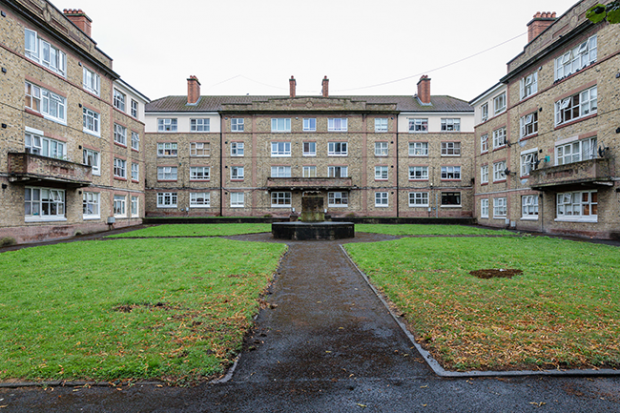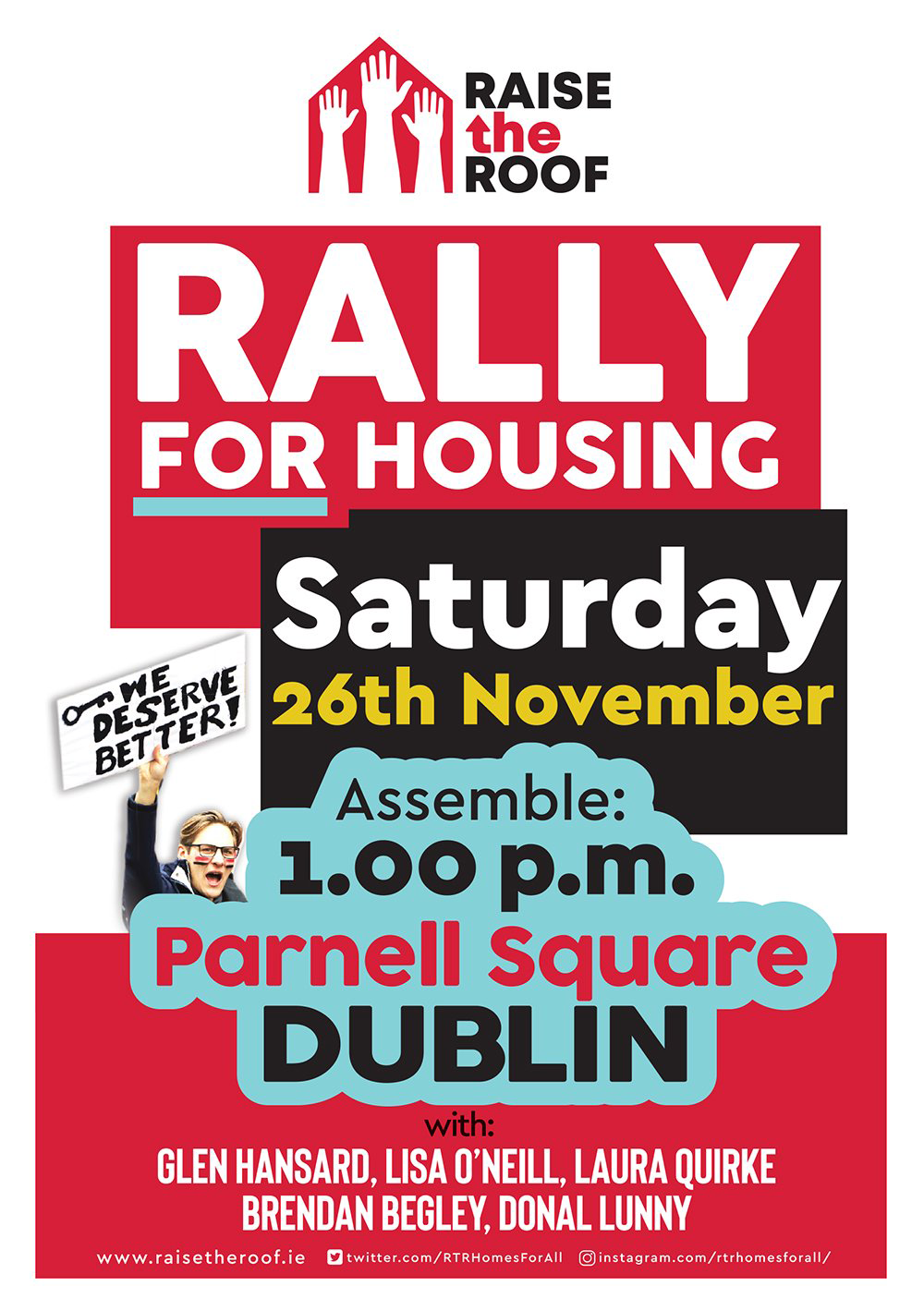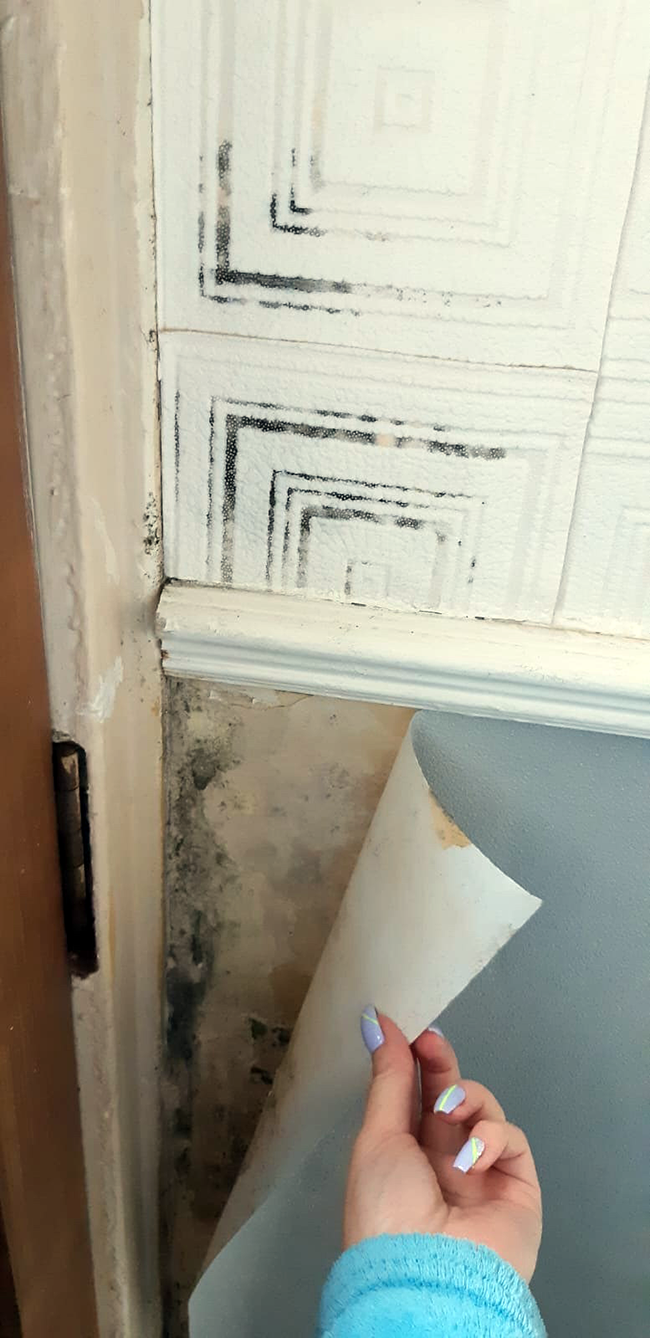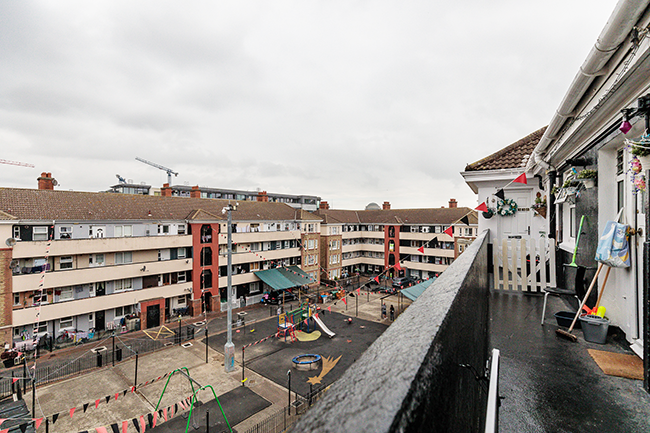25 November 2022
The fight for housing justice in Dublin’s Liberties

• Oliver Bond House, photo by Pierluigi Cattani Faggion
Lidia Katia C. Manzo, is an assistant professor of sociology at the University of Milan. Here she writes on her work in leading a City of Care EU project centred on the Dublin’s Oliver Bond flats where the community is seeking fair regeneration of an estate where 83% of residents are living with mould and damp and 74% have drafts and poor insulation, Over one in three residents have sewage problems, and problems with pests, including rats.
• • • • • • •
The Liberties, in South Central Dublin, is currently undergoing a housing crisis. It has seen upwards of 5,000 transient units built in the last 5 years, and although promised, very little social or affordable housing has been built.
The idea of being “transient” not only sounds disconnected from the everyday practices of this established community, but also very disrespectful of their sense of belonging. If one asks: “What does this area mean to you?”, to any long term resident - like I did last year with Natasha O’Keeffee - they would answer “For me it’s home”.
Same story for Jack Roche, a locally renowned Meath street greengrocer I interviewed in 2016, that would define the Liberties as a place where “people are looking after one another, this is our community! and we don’t want anyone that’s coming in and doing ill to our community”.
This means caring for each other and for the place they live. Care is indeed our subjective and collective capacity to create the political, social, material and emotional conditions that allow the vast majority of people and living creatures on this planet to thrive. And now it also means, more than ever, that we need to protect these communities from further erosion.
In fighting for homes, housing justice advocates are fighting for a bundle of rights that include the benefits linked to shelter: safety, comfort, sustainability and even political representation. Housing, therefore, is not a unidimensional commodity.
The fight for housing justice should not seek the sole outcome of increasing supply for those in greatest need. Instead, it must incorporate care, and its public, collective provisioning, into its discursive and material strategies and outcomes.

In the name of capital
The loosening of financial regulations in the late 1980s permitted Irish institutions to borrow freely on global money markets and lend with few controls to Irish clients. However, the Irish government’s faith in the neoliberal agenda of “light-touch” regulation of financial institutions gradually led to the virtual absence of state interference.
As MacLaran and Kelly clearly show in their book about Dublin, ‘Neoliberal Urban Policy and the Transformation of the City’, successive waves of entrepreneurial urban agendas have consolidated large-scale redevelopment projects.
As a result, booming local housing markets and the gentrification of space have become central pillars of urban policy. For many city dwellers, these policies have intensified housing pressures, everyday experiences of displacement, affordability problems and coping mechanisms. Welfare retrenchment, product deregulation and financial liberalisation have all contributed to a dual process of residualisation of social housing, as well as the unsustainable expansion and inflation of the private housing market.
However, as we are hopefully walking towards a post-pandemic recovery agenda, new publicly-led subjectivities and relational strategies have emerged as a coping mechanism to fight the instability and uncertainty of living at a disadvantage.

• Mould in Oliver Bond House
Housing crisis
In recent years, massive increases in house prices and rents have been damaging a generation of young adults who cannot afford to leave their parental homes. At the same time, we have witnessed a considerable reduction in the construction of new social homes.
Byrne and Norris from the UCD School of Social Policy have pointed out how, after the 2008 crash, global financialization processes have interacted with Irish neoliberal policies that – in the absence of stabilising countermeasures have exacerbated house price volatility in the private sector and housing supply contraction.
This is particularly true in the social housing sector, where funding fell by 88% during the post-crash years and output fell from 7,588 units in 2008 to just 2,000 in 2019. In the meantime, average private rents have increased by approximately 60% since 2012. As Hearne asserts in his newly published book Gaffs, “This crisis has reached the point of inflicting major social and economic damage to this country and its people, and is even causing a mental health crisis of its own”.
But there is more. In Dublin, many inner-city social housing complexes are being poorly maintained, and if there is one lesson we have all learnt from the COVID-19 pandemic, it is how living in inadequate, overcrowded – “sick” – homes can lead not only to physical problems, but also mental “urban trauma.”
The pandemic, along with the shelter-in-place orders implemented to manage the crisis, put a spotlight on these enduring housing affordability and quality gaps, particularly among low-income and vulnerable households. People living in poor-quality housing or unsafe conditions such as overcrowding or homelessness faced elevated health and safety risks during the pandemic. I have come to understand the absolute urgency and necessity to further study this problem: the EU research project CITY-OF-CARE contributes to this central and indispensable discussion.

Inadequate social housing in Dublin: the case of Oliver Bond House
I have conducted this EU-funded research project duringa time of unprecedented worldwide lockdowns. The COVID-19 pandemic reinforced the critical role of social housing in providing stable, safe and affordable accommodation, while also fuelling a renewed urgency to address housing vulnerability.
Housing quality can adversely influence multiple dimensions of health and exacerbate health inequalities. Poor-quality housing is a key concern for social housing communities, where it is estimated that the vast majority of residents are living in overcrowded homes with damp, mould, cold and pests. These results, emerging from research withininner-city Dublin, identify the health conditions of social housing residents who are “sick of waiting” for regeneration.
They outline how these factors that have been aggravated by COVID-19, demonstrate the need for a public housing policy that recognises the quality and quantity of adequate housing provision, and highlight the need to develop cities of care, where public health and social justice are at the forefront of politicians’ agendas
CITY-OF-CARE draws on extended ethnographic and participatory research to document the Oliver Bond community’s journey in seeking fair regeneration of their social housing estate within the gentrifying inner-city neighbourhood of the Liberties in Dublin. In March 2021, a group of residents, supported by the Robert Emmet Community Development Project (RECDP), distributed a survey on housing conditions to all 391 units within the estate.The results reported living conditions that were clearly in breach of the residents’ right to adequate housing.
They show that a staggering 83% of residents are living with mould and damp and that nearly three-quarters (74%) have drafts and poor insulation, which makes it impossible to keep their homes warm. Over one in three residents (35%) have sewage problems, and over a third (34%) have problems with pests, including rats.
Over half of the residents (55%) have been told by a medical practitioner that damp, mould, or sewage is contributing to ill health in their families. However, the residents have been told that it will be at least fifteen years before their long-promised regeneration programme is completed.
On 30 June 2021, several women residents, supported by the RECDP, launched the We’re Sick of Waiting media campaign for better housing conditions, calling on Dublin City Council (DCC) to fast-track physical and social regeneration plans for the estate and put in place immediate interim improvements to make the flats liveable, healthy and safe.
Built in 1936 and designed byHerbert G. Simms, the Oliver Bond flats complex is one of Ireland’s largest local authority housing estates. It consists of sixteen separate blocks of flats and three houses, with a total of 391 apartments built over 2,847 hectares and a current population of about 1,200 people – of which about half are children.
The establishment of such a large and distinctive city-centre flat complex was a response to the 1932 Irish Housing Act, which placed increased emphasis on slum clearance and, paradoxically enough, the serious housing and public health issues facing the city at the time. And we need to relearn those lessons from early twentieth centuries Irish housing policies, like the fascinating report from 1914 on Housing Conditions of the Working Classes in Dublin mentioned in Hearne’s book, which actually led to homes built for public health.
The problem of housing in the Oliver Bond community is very close to me, as I have researched and have spent time with its residents and on the streets of the Liberties in Dublin since 2015. I have reflected analytically on the injustices of gentrification and regeneration processes at stake in that particular area of inner-city Dublin.
In my research, I found that health inequities are actively produced but can also be resisted. They represent the outcome of an interlocking system of politicised, institutionalised and interpersonal practices that affect social exclusion with reference to health in housing markets, among other aspects. This mechanism can be called health discrimination.
Thinking of the inadequate conditions of social housing complexes like the Oliver Bond flats, one is left wondering: Why does the Irish state allow all this? Why does it not care? Why does the landlord, DCC, not care? And what can be done to support the Oliver Bond residents – and every other social housing tenant – in caring for their right to decent housing?
One barrier to developing an effective housing policy is the lack of information on housing quality at the community level. Community development organisations, housing alliances, advocacy groups and neighbourhood initiatives are the main channels to publicisesurveys that expose poor housing and health conditions and make the voices of vulnerable tenants heard.

• Oliver Bond House, internal play area. Photo by Pierluigi Cattani Faggion
Placing care at the heart of housing and health strategy
On 18 October, I organised a community collaborative workshop titled “CARE, HEALTH, and HOUSING” in partnership with the Maynooth University Social Science Institute and the RECDP at the Digital Hub Development Agency in Dublin 8.It soughtto bring people together from across the academic, health and housing sectors. Its aimswere to develop joint solutions, identify common ground, and alleviate residents’ pressures due to inadequate housing conditions.
Gayle Cullen Doyle, the chairperson of the Oliver Bond House Residents Group, spoke of how the residents of Oliver Bond are a proud, strong and united community, who have put in multiple generations of work. She spoke of how the very basic issues that go to the very heart of what decent, healthy and safe accommodation should be are being neglected. She addressed the urgent need for adequate accommodation, and basic human rights for the Oliver Bond community.
Rory Hearne, one of Ireland’s leading housing policy expert spoke of how safe, healthy and adequate housing is intrinsic to our basic needs as human beings:
“Substandard housing, such as affects some social housing in Dublin’s inner city like Oliver Bond, Dolphin House and elsewhere, has major physical and mental health impacts on residents. It also affects the fabric of the community. These are valuable communities. We must care for them, nurture them and invest in them”.
Mary Heavey of Community Law and Mediation spoke about the need to instil the right to adequate housing into the constitution and advised that:
“Housing should protect, rather than undermine, a community’s health. Substandard and inadequate housing not only undermines a community’s health, but negatively impacts all aspects of a person’s being, including their dignity, their well-being, their employment and educational opportunities, and their ability to fully participate in society”.
Austin Campbell, the executive director of RECDP, spoke onhow vulnerable communities are inevitably fighting a losing battle if they are not directly involved in the process, and how community organisations can act as a conduit in developing data surrounding the relationship between housing and health.
Two data experts, Kevin Credit (Maynooth University) and Jeffrey Roe (Tog Hackerspace), spoke on how open data networks and “citizen science” projects (e.g., DIY air quality sensors) could best be used to serve the needs of communities, cities and society at large.
In 2014, a coalition involving local tenants, the Community Action Network, the Centre for Housing Law, Rights and Policy, and the University of Galway made a collective complaint under the Revised European Social Charter of the Council of Europe. They claimed that Ireland was in breach of Article 16, which relates to the right of the family to social, legal and economic protection. In 2017, 2020 and 2021, the Council of Europe’s European Committee of Social Rights concluded that Ireland continued to violate Article 16.

Deeper solutions lie in the political arena
Now is the time for a joint public housing and public health agenda. It shouldcreate healthier homes by confronting the everyday impact of inadequate housing, while tacklingsocial inequalities more broadly.
Now is the time for public landlords to respect their “duty of care” to ensure the health, safety and well-being of social housing complexes like Oliver Bond. Further research is needed in many other DCC social housing complexes within the Liberties suffering from dereliction: Michael Mallin, Pimlico, School Street, Marrowbone Lane, Watling Street, Basin Street, etc. They all suffer from the same landlord neglect as Oliver Bond. The real challenge is to imagine what a health-sensitive society could and should look like, what kind of housing system might sustain it, and what steps must be taken to achieve it.
The COVID-19 pandemic has certainly laid bare the horrors of neoliberalism, but it has also revitalised a conversation about care, however limited its practice may still be. There is significant reason to envision the post-COVID era as one of hope and possibility. It is my sincere hope that in 2023, there will be a referendum, and the Right to Housing will be enshrined within the Irish Constitution.
I have hope, because I believe in the possibility to produce cities of the twenty-first century that are just, safe, healthy, accessible, affordable, resilient and sustainable. Cities that ultimately embrace an ethics of care.
The Author
Lidia Katia C. Manzo is an assistant professor of sociology at the University of Milan. In 2020, she was awarded a Marie Sklodowska Curie Individual Fellowship by the European Union (EU) to develop the project CITY-OF-CARE at the University of Milan in partnership with Maynooth University (G.A.890603). Looking at Milan and Dublin, CITY-OF-CARE investigates the role of women’s leadership in building and using social capital that can sustain community care and solidarity over the long haul. The project focuses on how women’s leadership can challenge the inequities of neoliberalism and contribute to the advancement of the EU’s urban cohesion agenda. For more information, please visit www.cityofcare.org.
Follow us on Facebook
An Phoblacht on Twitter
Uncomfortable Conversations

An initiative for dialogue
for reconciliation
— — — — — — —
Contributions from key figures in the churches, academia and wider civic society as well as senior republican figures




